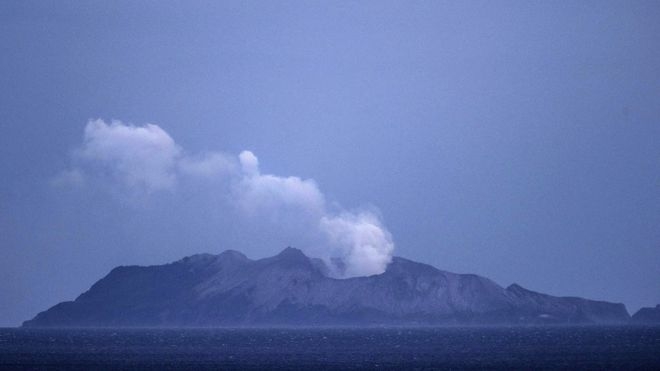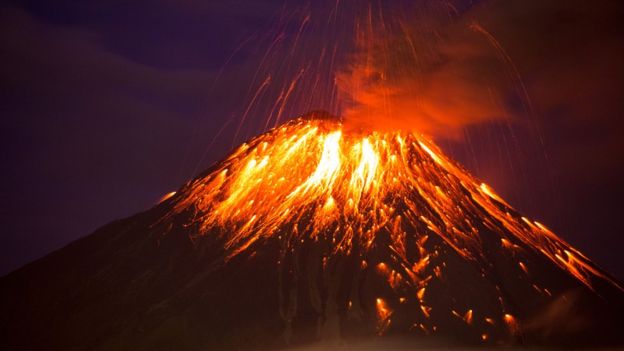New Zealand volcano: Can we predict eruptions?
Following the eruption of New Zealand's most active volcano, questions are being asked about why tourists were allowed to visit it.
"These questions must be asked and they must be answered," New Zealand Prime Minister Jacinda Ardern said in parliament after the eruption.
There were warning signs in the weeks prior to the eruption and last month the alert level was raised to two indicating moderate to heightened volcanic unrest.
However, the imminent and dramatic nature of the eruption took people by surprise.
So how good are we at predicting when a volcano will erupt and how severe it will be?
A volcanic eruption is when steam or lava is released from a volcanic vent.
It can be notoriously difficult - with devastating consequences - to know when an explosion might happen, especially when a volcano has been dormant for many years.
However, scientists can look for particular signs and trends to make predictions.
They monitor the activity of volcanoes by looking at:
- earthquakes
- emissions of gases
- inflation or deflation of the volcano
If scientists start to see an acceleration of gas from volcanic vents or nearby tremors, for instance, they may start to get concerned about an eruption.
However, predicting whether those signs indicate an eruption will be in one hour, a month or even longer away depends on the individual volcano.
The more data volcanologists have on a specific volcano, the better they'll be able to anticipate its behaviour and the possibility of an eruption.
Most volcanoes tend to show these signs in the weeks or months prior to an eruption but some explosions are much more sudden and unexpected.
It's also more difficult to judge eruptions when volcanoes have been dormant for a while or were active prior to the introduction of modern monitoring technology.
.
Related Posts


